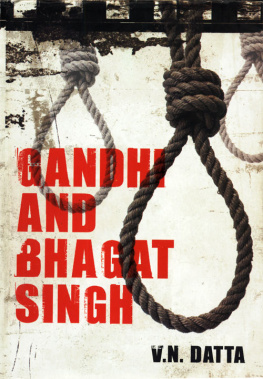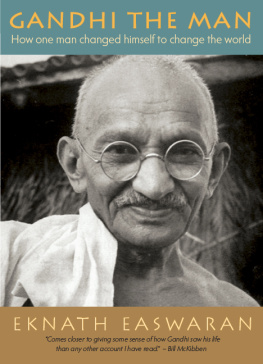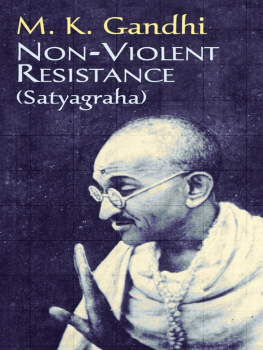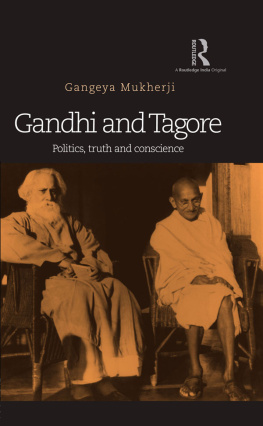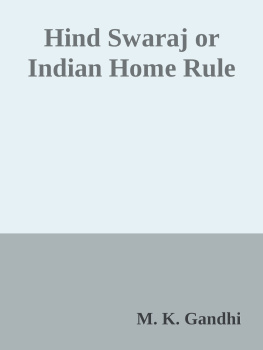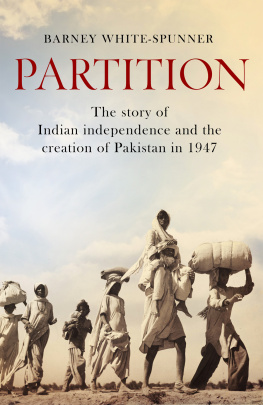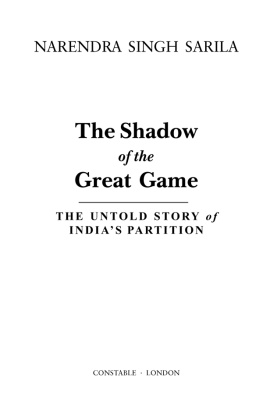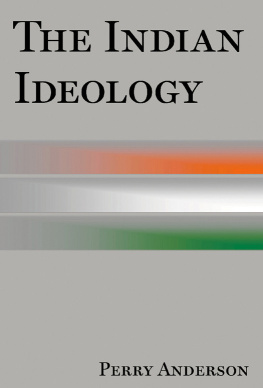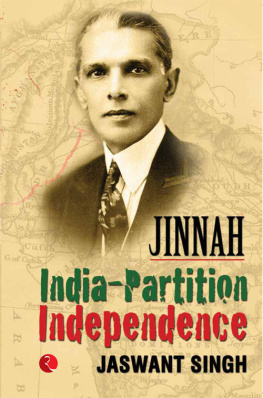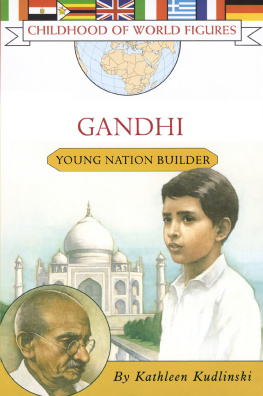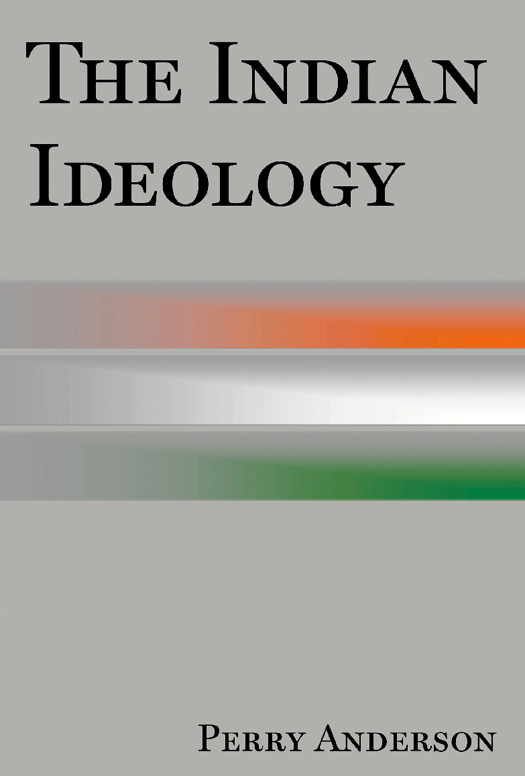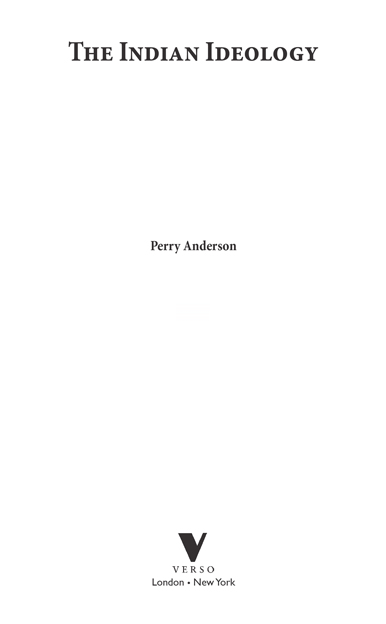This eBook is licensed to John Loughlin, john@rubywhite.com on 12/31/2014
By the same author
Passages from Antiquity to Feudalism
Lineages of the Absolutist State
Considerations on Western Marxism
Arguments within English Marxism
In the Tracks of Historical Materialism
English Questions
A Zone of Engagement
The Origins of Postmodernity
Spectrum
The New Old World
This eBook is licensed to John Loughlin, john@rubywhite.com on 12/31/2014
This eBook is licensed to John Loughlin, john@rubywhite.com on 12/31/2014
This paperback edition first published by Verso 2013
First published by Three Essays Collective 2012
Perry Anderson 2012, 2013
All rights reserved
The moral rights of the author have been asserted
Verso
UK: 6 Meard Street, London W1F 0EG
US: 20 Jay Street, Suite 1010, Brooklyn, NY 11201
www.versobooks.com
Verso is the imprint of New Left Books
ISBN-13: 978-1-78168-259-3
British Library Cataloguing in Publication Data
A catalogue record for this book is available from the British Library
Library of Congress Cataloging-in-Publication Data
Anderson, Perry.
Indian ideology / Perry Anderson.
pages cm
Originally published: Gurgaon, India : Three Essays
Collective, 2012.
ISBN 978-1-78168-259-3 (pbk.)
ISBN (US): 9781781682609
ISBN (UK): 9781781685549
1. IndiaHistoryAutonomy and independence movements. 2. IndiaHistoryPartition, 1947. 3. IndiaPolitics and government19474. Political cultureIndia. 5. Gandhi, Mahatma, 1869-1948. 6. Nehru, Jawaharlal, 18891964. I. Title.
DS480.84.A734 2013
954.04dc23
2013019312
v3.1
This eBook is licensed to John Loughlin, john@rubywhite.com on 12/31/2014
Contents
This eBook is licensed to John Loughlin, john@rubywhite.com on 12/31/2014
Foreword
The origins of this text lie in a book to appear on the emergent inter-state system of the leading powers of the time, covering the United States, China, Russia, India and Brazil I have written about the European Union elsewhere. Treatment of each of these will be distinct in form, but as in that earlier work on Europe, one state seemed to require more historical background than the others under consideration. In The New Old World, that country was Turkey. In the forthcoming volume, it is India. The reasons are in each case the same. Both states are the products of national movements of the early twentieth century, whose history has become the object of official versions of the past, extending pervasively into a present whose shape cannot be adequately grasped without addressing these. Discussion in independent India has never been as constrained as in Turkey. But powerful taboos surround a truthful accounting alike of the ways in which Ottoman and British empires passed away; the dramatis personae of their expiry; and the nature of the political orders that succeeded them. This was first brought home to me on registering the reception of Kathryn Tidricks biography of Gandhi, which appeared in 2007, to which I allude in what follows. Unlike the very different figure of Kemal, writing on Gandhi has never been subject to censorship in India, where critical treatments can be found from the 1920s onwards. Since independence, however, these have been vastly outweighed by a literature of adulation or circumspection. The lack of a single serious notice in the subcontinent of Tidricks work, the first notable scholarly study of Gandhis religious and political thinking from his time in England and South Africa to his death, made clear how deep repression of inconvenient historical realities has become, not only in the popular media, but quite widely in the intellectual community of the Union.
Originally appearing, without footnotes, across three issues of the London Review of Books in the summer of 2012, an attempt to confront some of these realities is published here, at the initiative of the Three Essays Collective, under a title that alludes to a work of Marx on thinkers of his own country. The Indian Ideology, however, deals with another albeit related sort of subject: not simply a prevailing set of ideas, but also the conditions and events that generated them, and which they both reflect and distort. The first of these lies in the beliefs and actions of Gandhi, as the central figure of the struggle for independence in the subcontinent, with whom the opening section of the text is essentially concerned. The second involves the way power was transferred from the Raj to Congress after 1945, amid the catastrophe of Partition, whose place in the foundation of the state can be compared to that of the Armenian genocide in Turkey, not in its nature, which was very different, but in a continuing incapacity to come to terms with the disaster. The last concerns the structure of the Indian state as it emerged under Nehru, which forms the focal point of the Indian Ideology of recent years. The record of its first ruler is one question raised, and rarely answered with any degree of candour, by the republic that followed. At a deeper level, what has been the social anchorage of democracy in India, and the bearing of caste on it? What, in turn, is the place of religion in the Union secular in statement, how far is it in substance? What, finally, are the birth-marks and costs of the unity of the nation?
The Indian Ideology, a nationalist discourse in a time when there is no longer a national liberation struggle against an external power, and oppression where it exists has become internal, obscures or avoids such issues. It is not, of course, the only nationalist ideology of contemporary India. To its right, Hindutva offers a much more aggressive vision of the nation. Nor is it woven simply of myths and delusions. The values to which it appeals, as I make clear, are not mere fictions, and the ideology would be of little effect if they were. But they form so selective a representation of reality that, as a system, they become a discourse that fatally generates a culture of euphemism and embellishment, precluding any clear-eyed stock-taking of past or present. Empirically, few thinkers or writers of any standing offer undiluted cases of it. As a mental framework, it can coexist with a wide range of outlooks that in detail are more critical than or contradictory of it. To reject it is thus not to dismiss the work, often original and substantial, of all those who give expression to the ideology; to do so would make a clean sweep of much, within its limitations or exceeding them, that is intellectually impressive.
The principal carrier of the ideology is the liberal mainstream of Indian intellectual life. There, British influences dating from the Raj have been increasingly replaced by American variants, as the United States becomes the land of consumer reference for the Indian middle class, and of principal academic location for scholars of the diaspora. But it would a mistake to identify the conventional idea of India simply with Indian liberalism, declarative or unspoken. It extends much further, into wide reaches of the area self-defined as to the left of this mainstream.


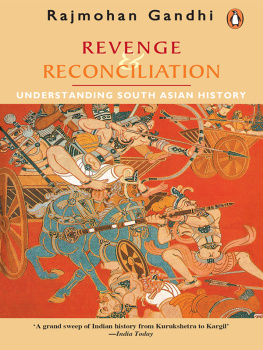
![Gandhi - Gandhi: [the true man behind modern India]](/uploads/posts/book/175484/thumbs/gandhi-gandhi-the-true-man-behind-modern-india.jpg)
